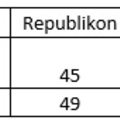First of all, I stand with CEU. In this post I intend to examine the plausible reasons behind the government’s proposal and assess the possible consequences.
There is always ample room for irrationality and uncertainty, but on the basis of the government’s activities in the past several years, we may have an idea of how the Hungarian government works. If there is one thing safe to say about the government it is its narrative: the ’freedom-fight’. According to Orbán, he defends Hungary’s sovereignty against any foreign and domestic threats: Brussels, multinational companies, migrant-influx or, and recently, most of all, George Soros. A scapegoat has an essential role to play in this narrative: it is needed to maintain the climate of fear, readiness for war. (Since majority of the Hungarian media is owned or influenced by the government, the story is easy to comprehend and hard to resist for many people.) It is the only way for diversion: as long as the agenda is dominated by this narrative, problems of health care, education and corruption-scandals are secondary. If there is no migrant we need something else, and it would be hard to find someone better than George Soros: an influential multibillionaire with Hungarian Jewish origins, who openly disagrees with the government’s migrant-policy and transparently supports human right organizations in Hungary (and in many other countries). One of the main problem of the leftist opposition is that it could not find a plausible and simple counter-narrative: a story which can be told in one sentence.
Thus, paradoxically, secretary Palkovics seems to be right: the government does not really want to destroy CEU. There is no financial incentive for it (except few wonderful new buildings of the university), even the ideological differences are just an excuse: in my opinion the proposal’s sole goal is agenda-setting. To a certain degree, the domestic and international protest – European Commission and the US Embassy already voiced its concerns – actually reinforces Orbán’s narrative: Hungary’s sovereignty is threatened by global superpowers, George Soros and his local ’agents’ (e.g. human right organizations). Should the pressure exceed a certain limit, the government is prepared to drop the proposal (as they did in the case of the Norwegian Grants or the Hóman-statue): that would „prove” that Hungary is not a dictatorship, the government is ready to listen. This would not be a painful retreat for the government: no strong economic interests are violated.
This is, however, not a win-win situation for Fidesz. If the protestors manage to build a plausible counter-narrative – and dominate the political agenda with it –, the government will quickly lose ground. The protest against the ’internet-tax’caused a really sizable loss in the polls within one month. Of course, contrary to the CEU-case, this directly affected people’s pocket, even the internet-tax could not do such a serious damage without an alternative narrative. According to the young protestors of the internet tax, Orbán represents the past: he is not only completely incompetent in terms of modern technology, he actually prevents other people from using it. (A prominent party-member of Fidesz made jokes about Orbán’s inability to handle his cell phone.) Momentum movement’s initiation against the Olympic bid proved to be successful (among other factors) because they offered a plausible approach: it is a breeding ground for corruption, mainly the oligarchs linked to Fidesz, and not the population at large, would benefit from the Olympic games. The government made considerable efforts to paint the protestors as ’Soros-agents’, ’liberals’ and ’leftist’, to support its own narrative. This endeavor, however, completely failed. The picture of tens of thousands of people marching through the Erzsébet-bridge, and the quarter-million signatures (collected by the young Momentum activists in the coldest days of the Winter) made Fidesz’s interpretation completely implausible.
Of course I do not claim the attack on CEU is as big a mistake of Orbán’s as the internet-tax: I simple point out that the success of the protestors are up to two things: who will join them, and what counter-narrative they manage to build. Should many conservative intellectuals and citizens step up (as Professor Zoltán Balázs, conservative journalist Szilárd Szőnyi and Gábor Bencsik, the Head of the Hungarian Academy of Science, László Lovászy did), should many European conservative and American Republican politicians object, should many people demonstrate, the government will be quickly and hopelessly isolated. As for the narrative: the Socialist party’s attempt (’treasonous Orbán-government’), or the usual ’democracy is under threat’ would not mobilize the mass. A more effective story would reveal the proposal is vehemently against human knowledge and wisdom: the victims of the measure will be the ambitious (but less affluent) young Hungarians, Hungarian science and culture, and – due to the loss of tax-revenues – the Hungarian state. This time, instead of taxing the knowledge, the government is simple attacking it.



